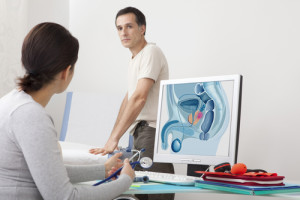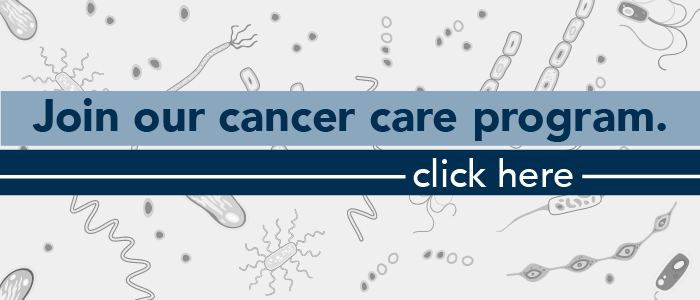Once again low fat, low animal protein, high fiber (vegetables, whole grains and beans) diet helps to prevent cancer of colon and prostate. Add exercise and the results are even better. The China Study showed the correlation of animal products in the diet and chronic disease, including cancer. And, the macrobiotic diet has the longest and best researched track record in preventing and sometimes reversing cancer.
Ronald Peters, MD, MPH
IN CANCER RESEARCH, DIET AND EXERCISE ROLES STRENGTHEN
Published in The Scientist, written by A. J. S. Rayl, October 15, 2001
The theory that a healthy diet and regular exercise can be key factors in staving off cancer surfaces again. The latest support comes from researchers spanning from the United Kingdom, across the Atlantic, to the shores of the Pacific Ocean–researchers at the Imperial College of Medicine and the UK’s Institute of Food Research studying colon cancer, and investigators at the University of California at Los Angeles looking into prostate cancer. The UCLA researchers found that a low-fat, high-fib
The theory that a healthy diet and regular exercise can be key factors in staving off cancer surfaces again. The latest support comes from researchers spanning from the United Kingdom, across the Atlantic, to the shores of the Pacific Ocean–researchers at the Imperial College of Medicine and the UK’s Institute of Food Research studying colon cancer, and investigators at the University of California at Los Angeles looking into prostate cancer.
The UCLA researchers found that a low-fat, high-fiber diet and daily exercise can slow prostate cancer cell growth. “This is the first study to directly measure the effects of diet and exercise on inhibiting growth of prostate cancer cells and it strongly suggests that a low-fat diet and exercise regimen favorably affects the levels of hormones or growth factors that influence prostate cancer growth,” says William Aronson, senior author of the study that appeared recently in Journal of Urology.1
Aronson and colleagues at the Jonsson Cancer Center and the department of physiological science studied two groups of healthy men, aged 38 to 74–a short-term group comprised of 13 overweight men who did not have a history of eating healthy or exercising regularly, and a long-term group that featured eight men who had subscribed to healthy living for 14 years or more. They put both groups on a strict 11-day diet and exercise program. “The diet contained less than 10 percent of calories from fat, 15-20 percent from protein, and 70-75 percent from carbohydrates, while exercise focused on walking,” explains Aronson. Then, the UCLA investigators combined the serum samples with prostate cancer cells in test tubes.
Cells from the short-term group showed a 30 percent slower growth rate compared to baseline serum samples taken prior to the regimen, while those from the long-term group showed a 40 percent reduction. Weight loss turned out to be an added benefit, especially for the short-term group.
Further Research in Progress
 “While this experimental approach works very nicely for looking at multiple interventions at once … and even though other data would suggest we might obtain positive results, we were surprised by how strong a finding it was,” Aronson offers. “Although more in-depth research is needed, the implications are that one may be able to slow the growth of prostate cancer or maybe even prevent prostate cancer.”
“While this experimental approach works very nicely for looking at multiple interventions at once … and even though other data would suggest we might obtain positive results, we were surprised by how strong a finding it was,” Aronson offers. “Although more in-depth research is needed, the implications are that one may be able to slow the growth of prostate cancer or maybe even prevent prostate cancer.”
The researchers were not able to separate the exercise and dietary components, making it difficult to attribute the results to diet, exercise, or a combination of both. “That’s the next step,” says Aronson. In January, they began a new clinical trial that focuses on diet alone to “try and identify specific diets which the public may be able to adhere to help prevent or treat prostate cancer.”
Eat Your Vegetables
Biochemical experiments performed at the Imperial College of Medicine and the Institute of Food Research support the largely epidemiological link between a diet rich in cruciferous vegetables and lowered risk of developing colon cancer.2 Cooking meat induces the formation of heterocyclic aromatic amines (HAs), which, when metabolized in the liver, release carcinogens. Vegetables produce glucosinolates, which activate enzymes that detoxify HAs.
Twenty healthy men followed three 15-day dietary regimens, each including a steak dinner on day 13 and a dose of caffeine 12 hours later, followed by various samplings of body fluids. The first and third periods were relatively veggie-free, but the middle period included broccoli or Brussels sprouts at breakfast and dinner. The researchers assessed HA levels in the body fluids, and tracked caffeine metabolism as a measure of the vegetable enzyme activity. The vegetables lowered the concentration of HAs in urine by 22 percent; the only reported side effects were caffeine withdrawal and mild flatulence.
But if rare steak can transmit prions, and cooked steak raises cancer risk, what’s a meat lover to do? “Enjoy your beef as part of a sensible balanced diet. Don’t eat too much and make sure you also consume lots of vegetables and fruit. An accompanying glass of wine is always nice and possibly beneficial,” advises lead author Nigel J. Gooderham, a professor in the department of molecular toxicology at the Imperial College School of Medicine in London.
A.J.S. Rayl and Ricki Lewis are contributing editors for The Scientist.
References
1. C.N. Tymchuk et al., “Evidence of an inhibitory effect of diet and exercise on prostate cancer cell growth,” Journal of Urology, 166:1185-9. September 2001.
2. S. Murray et al., “Effect of cruciferous vegetable consumption on heterocyclic aromatic amine metabolism in man,” Carcinogenesis, 22[9], 1413-20, September 2001.






